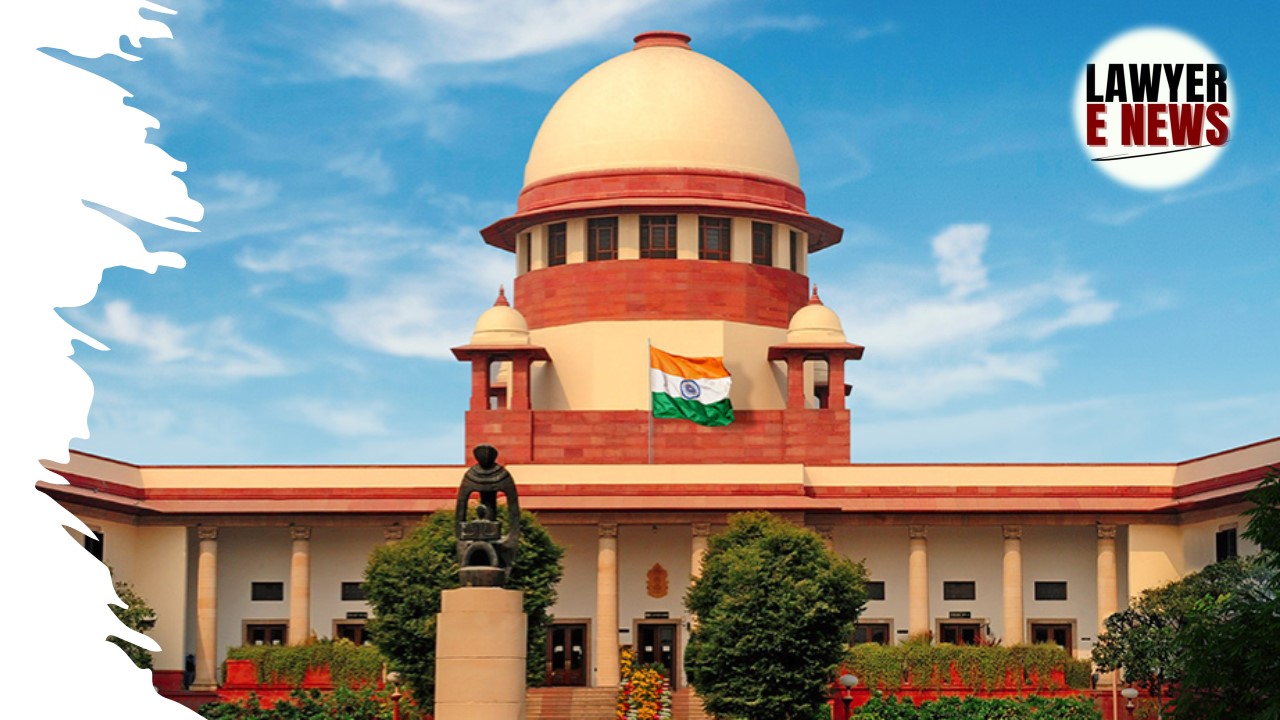-
by Admin
15 February 2026 5:35 AM



On September 11, 2024, the Supreme Court of India set aside a Himachal Pradesh High Court judgment that had erroneously granted ownership rights to a tenant based on a consent order from 1979. The case involved a dispute between the legal heirs of a landlord and a tenant over the interpretation of the consent order. The Supreme Court ruled that the consent order, issued under the Himachal Pradesh Urban Rent Control Act, did not confer ownership upon the tenant, as no registered instrument of transfer was executed.
The dispute originated in 1977 when the landlord, Bhawani Parshad, filed an eviction suit against his tenant, Charan Dass, on the grounds that the rented property—a house in Chamba—was dilapidated and required reconstruction. In 1979, a settlement was reached, whereby the tenant agreed to pay Rs. 12,500 to the landlord, after which the eviction application would be dismissed. The tenant paid the amount, and the eviction suit was dismissed.
Despite this, subsequent legal battles arose, with the tenant claiming ownership of the property based on the consent order. After losing at the trial court and first appellate court, the tenant succeeded in the High Court, which ruled in his favor, interpreting the consent order as a transfer of ownership.
The key question was whether the 1979 consent order, which dismissed the landlord’s eviction application upon the tenant’s deposit of Rs. 12,500, conferred ownership of the property to the tenant. The landlord's legal representatives argued that the consent order only resolved the eviction dispute and did not transfer ownership.
The Supreme Court emphasized that the consent order did not mention any transfer of ownership. The tenant had only agreed to pay Rs. 12,500 as a settlement to prevent eviction. The court clarified that merely stating an amount equivalent to the property’s value does not amount to a sale or ownership transfer.
The court highlighted that no registered instrument, as required under property law, had been executed between the parties. In the absence of a formal transfer of title, no ownership could be conferred upon the tenant. The court remarked, “A plain reading of the statements clearly demonstrates that there was no settlement of transfer of property on the above sale consideration.”
The court further held that in eviction proceedings under the Himachal Pradesh Urban Rent Control Act, the only reliefs that could be granted were eviction or dismissal of the eviction application. The Rent Controller had no authority to confer ownership rights through an eviction order.
The Supreme Court concluded that the Himachal Pradesh High Court had misinterpreted the 1979 consent order and erred in reversing the well-reasoned judgments of the trial court and first appellate court, which had dismissed the tenant’s claim of ownership.
The Supreme Court set aside the High Court's judgment, ruling that the tenant had no ownership rights over the property based on the consent order. The decision reaffirmed the principle that ownership of property cannot be transferred without a registered document, even if the parties agree to a financial settlement in an eviction case.
Date of Decision: September 11, 2024
Beena & Ors. vs. Charan Das (D) through LRs & Ors.
